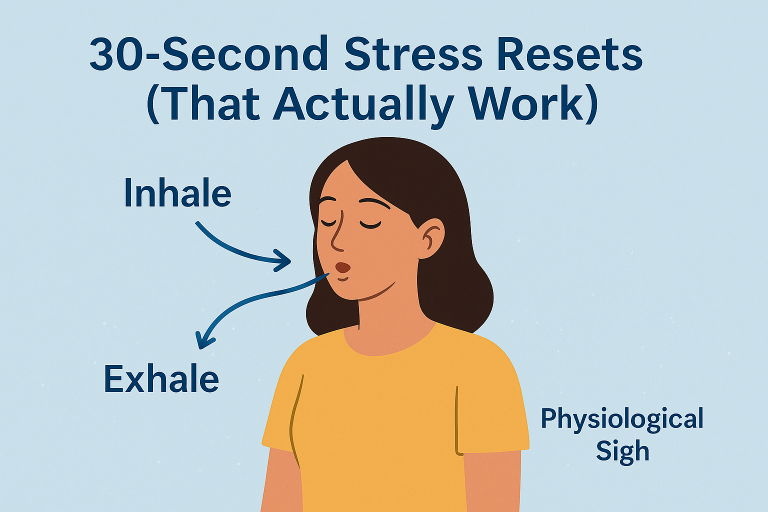Keeping a health journal is an important step in self-care and achieving good mental health.
It can be difficult to take the time for yourself, but it’s worth it in the long run to improve your wellness.
By writing down your thoughts and feelings about your day; along with any physical symptoms you experience; you’ll start to recognize patterns in how you feel. This will help guide you in figuring out what might be causing these issues.
It’s also recommended that when keeping a health journal, each entry includes four things: date, time (and sometimes duration), description of physical symptoms; emotional or psychological state; and possible triggers or remedies. You should write everything as accurately as possible because this will give you the most accurate picture of how your body works on a daily basis.
There are different methods out there for keeping a health diary, but it’s important to find the one that works best for you. There’s no wrong way to keep one, just as long as you’re honest with yourself while doing it.
What is a health journal?
A health journal, wellness journal, or a health diary is a record of everything that happens in your life and how it affects you physically and emotionally. Keeping a journal is an important step in self-care because when we pay attention to our bodies, we can learn more about ourselves.
Why it’s important to keep one
A health journal is a perfect tool for you to use to keep track of how your body feels and what triggers your symptoms.
If you’re experiencing any negative changes in your emotional or physical state, you can look back through your journal and figure out what might be causing those issues.
Health problems
Keeping a health journal is important because it can help you get information about your health problems. Maybe you’re looking for a new approach to address issues like inflammation, obesity, high blood pressure, or, if you have pre-diabetes or diabetes, the thought of constantly worrying about your health may be wearing you down. Keeping a health diary might be useful when it comes to dealing with health problems.
Food and exercise
Tracking your food and exercise can help you figure out what might be causing these issues. And if you’re just starting to work on your health, a health journal is also a great way to keep track of your progress.
Figuring out triggers and remedies
Tracking your moods and physical symptoms can give you important information about how the state of your body changes throughout the day. Knowing this information can help you figure out what aspects of your life influence how you feel, whether that’s food, meditation, exercise, or socializing with friends.
If you notice a pattern of negative thoughts or feelings, maybe something’s triggering those! You can look back into your journal and see if anything stands out as the cause of those feelings.
How do I keep a healthy diary?
The best way to keep a health journal is, to be honest with yourself when you write in it. Be sure you’re writing each entry in four different categories: physical symptoms, emotional state; triggers; and remedies that could help you feel better.
You can even log food and exercise! This will help you track patterns in your eating habits and activity levels.
You should also consider writing down what time you go to sleep and wake up at, as well as how many hours of sleep you’re getting a night.
There are many ways to keep a health journal. Find one that works best for you. There’s no wrong way to keep track of your health.
Here are some metrics you can track:
- Mood
- Allergies, rashes, or any skin changes
- What food you’re eating
- Water intake
- Injuries, illnesses, or careclinic visits
- Exercise
- Unusual pain or fatigue
- Sleep
- Hormones
- Medicines, vitamins, or supplements you’re taking
- How many times do you go to the bathroom
- etc.
Why is it important to make a health diary when you are young?
Keeping a journal when you’re young is important because the more awareness you have of your physical and emotional state, the better equipped you’ll be to deal with any issues that arise. The earlier in life you start practicing good self-care habits, the easier it will be for you in adulthood.
Making a health journal doesn’t have to be difficult! It can be as simple as a notebook and pen, or you could use an app on your phone. You can record your symptoms and triggers in words or pictures, so find what works best for you.
Ways you can get started today with your own health journaling process
Here are some ways you can start with your health diary right now:
- Download an app on your phone to use as a health journal
- Set up a Google doc or Excel sheet, where you can write in every day
- Buy a planner and keep track of how you feel each day or week
You should always use what works best for you. It’s also vital that if something ever feels overwhelming, you should always, without a doubt, seek help from a medical professional.
Don’t be afraid to think outside the box. Maybe instead of writing in a paper journal, try using an app on your phone. Maybe you’ll prefer Google docs or Excel sheets instead of buying a special planner.
Giving your body the love and care it deserves is one of the best things you can do for yourself, so start writing in a journal today!
Health journaling tips
Here are some tips on how you can be successful in keeping your journal:
Keep it personal
One of the most beneficial things about keeping a health diary is that you’re able to recognize your own body’s patterns. When writing about your experience, use first-person.
This will also help ensure that you avoid any common pattern mistakes people make when they write in the third person — passive voice or too formal sounding.
For example, instead of saying “on the third day, I was at the gym,” try something more along the lines of “I went to the gym for a total of three days.”
By writing in first-person you help remind yourself that this journal is about your body and your experience.
Be honest
It’s best to write down the feelings and symptoms you experience in a day, but it’s also important to identify triggers.
For example, if you’ve been feeling nauseous lately, write it down; along with what you ate before your nausea started.
If you feel like your anxiety is getting stronger over time, note that too. Being able to recognize what triggered these feelings can help you learn more about yourself and how your body works.
Be patient
Remember that it takes time for you to recognize any patterns in your feelings, as well as different remedies.
Give yourself some time (a few weeks is recommended) with keeping a wellness journal before analyzing the data and trying new things. By then, you will have a good idea of what works best for you.
Create and track goals
Being able to set goals in your journal is another great way to help yourself keep track of how you’re feeling.
For example, if you feel like you don’t sleep enough at night, write that down in your journal and create a goal for yourself to improve it. Write down what changes you’ll make and track them as they happen.
Start with short-term goals
If you’re new to keeping a wellness journal, it’s recommended that you start with smaller goals first, like writing down how many times you drink water in a day.
Once this becomes more natural and easily achievable, move on to bigger goals, like drinking more green tea or meditation.
Keep it organized
Finding an organizational system that works best for you is key to keeping your journal successfully. Some people like writing their data in bullet points or tables; others prefer typing it.
You can use the template below as a guide for how to keep a health journal.
Be realistic
Don’t set yourself up for failure by trying to achieve too much at once. Set yourself achievable goals and adjust them as you go along to keep things in perspective.
Ending note
The best way to keep a health journal is, to be honest, and thorough in what you write down, using first-person and keeping track of your physical symptoms, emotional/psychological state, and any triggers for these feelings.
Be patient and give yourself some time to get used to this process before making any changes based on the data you’ve collected.
When writing in your health journal keep it personal and organized so that you can use the information to learn more about how your body works.




